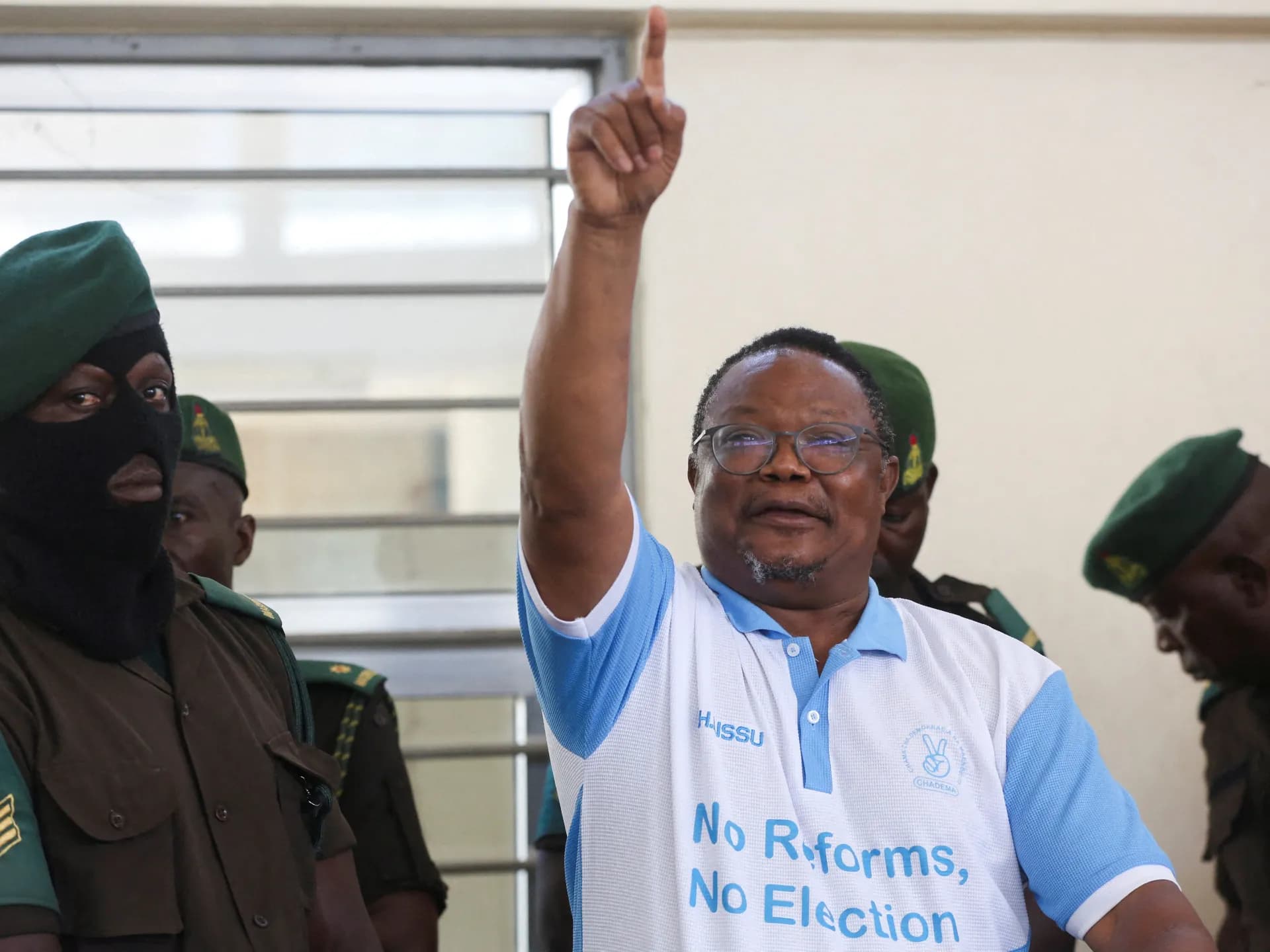We're loading the full news article for you. This includes the article content, images, author information, and related articles.
A wave of state repression, including crackdowns on political opposition, media, and civil society, is eroding democratic gains across East Africa, raising alarms about regional stability and the future of human rights.

NAIROBI, Kenya - A concerning trend of democratic backsliding is accelerating across East Africa, marked by increased state repression, the silencing of dissent, and the erosion of fundamental freedoms. According to multiple human rights organizations and political analysts, countries within the East African Community (EAC) are experiencing a significant shrinkage of civic space, with governments increasingly resorting to authoritarian tactics to maintain power. This pattern threatens not only the democratic aspirations of millions but also the long-term stability and economic prospects of the region.
Recent events highlight a grim picture. In Tanzania, the aftermath of the disputed October 2025 general election has been particularly stark. President Samia Suluhu Hassan's government has overseen a severe crackdown on the opposition. The main opposition party, Chadema, had its presidential candidate, Tundu Lissu, jailed for treason months before the election. Following the vote, which international observers from the African Union and the Southern African Development Community (SADC) deemed not credible, authorities arrested senior opposition leaders and charged hundreds of supporters with treason. Human rights groups have reported unlawful killings and excessive force by security forces against protesters, with internet and electricity blackouts hampering the verification of information.
In Uganda, the political environment remains tense, with the government of President Yoweri Museveni continuing to suppress opposition voices. The country's Constitutional Court in 2025 upheld the controversial 2023 Anti-Homosexuality Act, a move widely condemned as a violation of fundamental human rights. Journalists and activists, particularly those covering sensitive issues like the fossil fuel industry, face regular intimidation and violence from security services. According to the Varieties of Democracy (V-Dem) Institute's 2025 report, there is a significant risk that over 70% of East Africa's youth could be living under autocratic rule by 2030.
While historically viewed as a democratic anchor in the region, Kenya's own human rights record has deteriorated. The Human Rights Watch World Report 2025 noted a heavy-handed crackdown on nationwide protests against the high cost of living and controversial tax proposals in 2024. Authorities were accused of abducting and killing peaceful protesters with impunity, and President William Ruto's administration has been criticized for threatening the judiciary and civil society organizations. Despite these challenges, Kenya's democratic institutions have shown some resilience, as seen when youth-led protests in 2024 forced the government to withdraw a contentious finance bill.
The crackdown extends to media freedom across the region. The 2025 World Press Freedom Index by Reporters Without Borders (RSF) indicates a 'very serious' situation in Rwanda, Uganda, and Ethiopia. In Rwanda, the media is tightly controlled by the state, and journalists critical of the government face harsh sentences. Even in Kenya, which has traditionally had a more open media environment, journalists face surveillance and lawsuits aimed at silencing them. This hostile environment forces many into self-censorship, undermining the media's role as a public watchdog.
The democratic decline is not occurring in a vacuum. The Horn of Africa is already beset by conflict and instability, particularly in Sudan and Ethiopia, which has led to massive displacement and a severe humanitarian crisis. The conflict in Sudan alone has displaced 12 million people. This instability places additional strain on neighboring countries like Kenya, which hosts a large refugee population.
Civil society organizations (CSOs), which play a vital role in advocating for human rights and holding governments accountable, are facing increasing restrictions. Governments are de-registering or shutting down CSOs, and leaders are sometimes co-opted into government, eroding public trust. This shrinking civic space limits public participation in policy-making and can lead to a breakdown in the rule of law.
The rise of digital authoritarianism presents a new threat to the region's democratic future. The use of AI-driven disinformation, deepfakes, and internet shutdowns during elections, as seen in Kenya's 2022 polls and Uganda's 2021 elections, undermines public trust in the electoral process. As several East African nations head towards critical elections between 2025 and 2027, these digital tools could be used to further entrench authoritarian practices.
Analysts warn that the trend towards authoritarianism is costly, deterring foreign investment and redirecting state resources from public services to security and control. World Bank data indicated a 15% drop in foreign direct investment in Uganda between 2020 and 2024, linked to its oppressive state policies. As democratic norms erode, the risk of further conflict and instability grows, posing a significant threat to the entire East African region.
Keep the conversation in one place—threads here stay linked to the story and in the forums.
Sign in to start a discussion
Start a conversation about this story and keep it linked here.
Other hot threads
E-sports and Gaming Community in Kenya
Active 9 months ago
The Role of Technology in Modern Agriculture (AgriTech)
Active 9 months ago
Popular Recreational Activities Across Counties
Active 9 months ago
Investing in Youth Sports Development Programs
Active 9 months ago
Key figures and persons of interest featured in this article